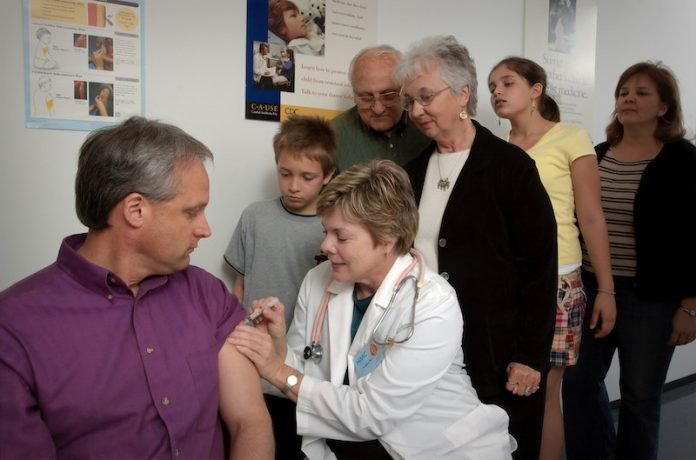
In a new study, researchers found that giving vaccine priority to those most at risk of dying from COVID-19 will save the maximum number of lives, and their potential or future years of life.
The findings challenge the idea that older people with shorter life expectancies should rank lower in coronavirus immunization efforts.
The research was conducted by a team at UC Berkeley and elsewhere.
Since older age is accompanied by falling life expectancy, it is widely assumed that means doctors are saving fewer years of life.
In the study, the team found that that vaccinating the oldest first saves the most lives and, surprisingly, also maximizes years of remaining life expectancy.
Taking age and health risks into account, they conducted an analysis of life expectancy in the United States, Germany and South Korea in the face of the yearlong coronavirus pandemic.
They based their calculations on the number of lives potentially saved from being vaccinated, multiplied by the life expectancy of those vaccinated.
For example, if 1 million vaccinations saved 1,000 lives, and those vaccinated people, on average, were projected to live another 20 years, the total number of years of life saved would be 20,000.
The analysis showed it is important to give vaccine priority to the oldest and those in the most vulnerable states of health because COVID deaths rise exponentially with age.
The researchers found that the COVID death rate by age increased by about 11% per year of age in the United States, Germany, and Korea.
Vaccinating people in their 90s would save three times as many lives as giving the same doses to people in their 80s.
Before this study, it was suspected that there would be some intermediate age—not too old and not too young—which would maximize the benefit of a vaccine, in terms of person-years of life saved.
But surprisingly, the findings show this is not the case.
One author of the study is Joshua Goldstein, a UC Berkeley professor of demography.
The study is published in the Proceedings of the National Academy of Sciences.
Copyright © 2021 Knowridge Science Report. All rights reserved.



